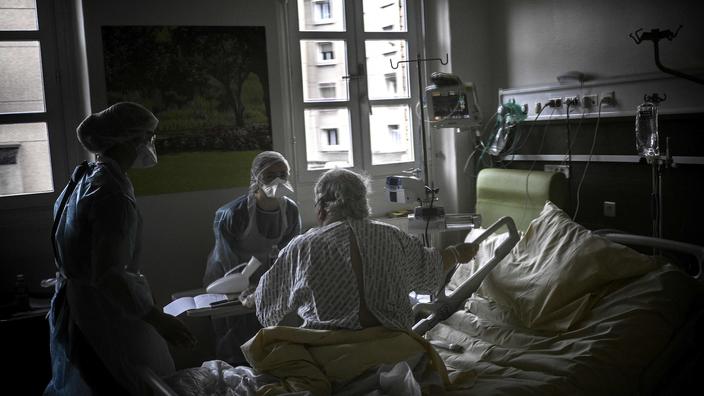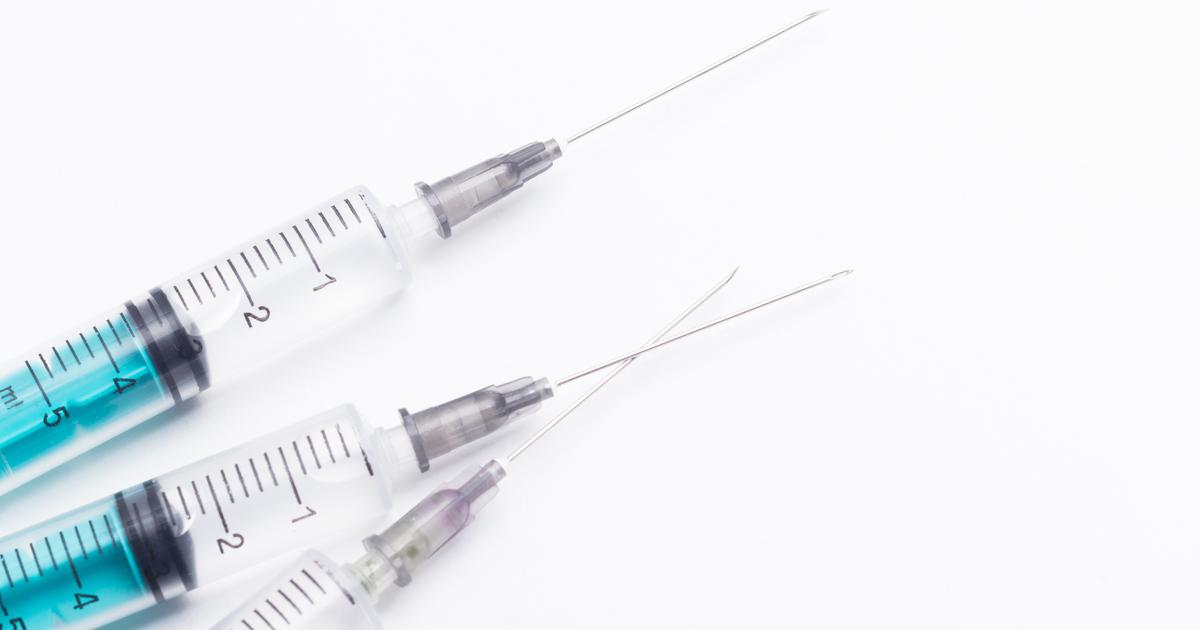In addition to oxygen, antibiotics, anticoagulants and cortisone offered to patients with Covid-19, Olivier Véran, Minister of Health, announced on March 18, a new treatment.
These are monoclonal antibodies, delivered as a dual therapy, and given during a single injection in the hospital.
These molecules were designed by copying natural antibodies which had fought well against infection with the virus.
To discover
Test, isolation: the procedure to follow in the event of a suspicion of Covid-19
On paper, these therapies show promise.
They must avoid the appearance of serious forms for people who have an increased risk of mortality, such as patients over 80 years of age or immunocompromised, undergoing chemotherapy treatment or having in particular pulmonary problems.
Read also: Do antibodies promote the emergence of variants?
Two “cocktails” were authorized on March 15 by Ansm, the French drug agency, in the context of therapeutic trials.
Two ATUs (temporary authorization for use) were issued to the Lilly France laboratory for two drugs (bamlanivimab and etesevimab) and, on the other hand, to the Swiss group Roche which distributes two molecules (casirivimab and imevimab) developed by the American company of Regeneron Biotechnology.
The latter had been inoculated to Donald Trump, on a compassionate basis, when he had been ill with Covid-19.
Reduce the impact of variants
It was decided to combine two antibodies in order to fight against the variants, in particular South African and Brazilian.
A single molecule seems inefficient according to a scientific article published in January in Jama.
The ANRS Emerging infectious diseases, in the evaluation file of bamlanivimab alone, had indicated that there was a
"possible ineffectiveness of the monoclonal antiviral antibodies on certain new variants"
and, more serious than it risked to promote an
"emergence". possible variants ”
.
The product was still ordered and administered.
"There are no clinical studies which confirm the effectiveness of the doses"
Pr Mathieu Molimard, head of medical pharmacology at the Bordeaux University Hospital
For cocktails of molecules, doubts remain about their effectiveness.
For that of the American group Eli Lilly,
“a press release of March 2, indicates that the dual therapy would be effective at the doses which have been allocated to us.
But there are no clinical studies that confirm the effectiveness of these doses, ”
deplores Professor Mathieu Molimard, head of the medical pharmacology department at the Bordeaux University Hospital.
The benefit would be to reduce the hospitalization rate from 2% to 6%, thanks to early intake.
In addition,
"although it is a combination of antibodies, their use at doses that are probably not those leading to maximum antiviral activity could lead to a risk of the emergence of resistant variants"
, warns the French Society of Pharmacology and Therapeutics.
The problem generated by bamlanivimab alone would therefore not be resolved by dual therapy.
As for the other cocktail (casirivimab and imevimab), the learned society recalls that a study, published in January in the New England Journal of Medicine, showed a reduction in the number of consultations at the hospital, with 3% in the group with antibodies versus 6% in the placebo group.
The effect is observed only
"for patients who have not yet developed an immune response"
.
Therefore, the benefit of treatments only exists if patients have developed symptoms for less than five days.
This is also what the General Directorate of Health recommends.
But taking drugs early may be complicated by the usual precautions imposed in France.
It is necessary both to carry out a PCR test for screening, then a so-called screening PCR test, to ensure that the patient is not contaminated by the South African, Brazilian or another variant carrying a mutation called E484K .
These two operations take a minimum of 48 hours in total, which considerably reduces the chances of the patient.
Put patients in isolation?
Finally, patients will have to be put in strict isolation in the hospital to ensure that the viral load drops, that they do not produce new variants or that they have severe allergic shocks.
With this preventive hospitalization, the theoretical benefit of the treatment risks being counterproductive, especially at the hottest moment of the pandemic when hospitals are on the verge of collapse.
"However, in the immediate future, it is essential to offer treatment, even experimental, to immunocompromised or very elderly patients who cannot benefit from protection by vaccination",
estimates Professor Michel Goldman, of the Université Libre from Brussels.








/cloudfront-eu-central-1.images.arcpublishing.com/prisa/ZYVWPUV4FBG5ZNEQFUECW6PXNM.jpg)






